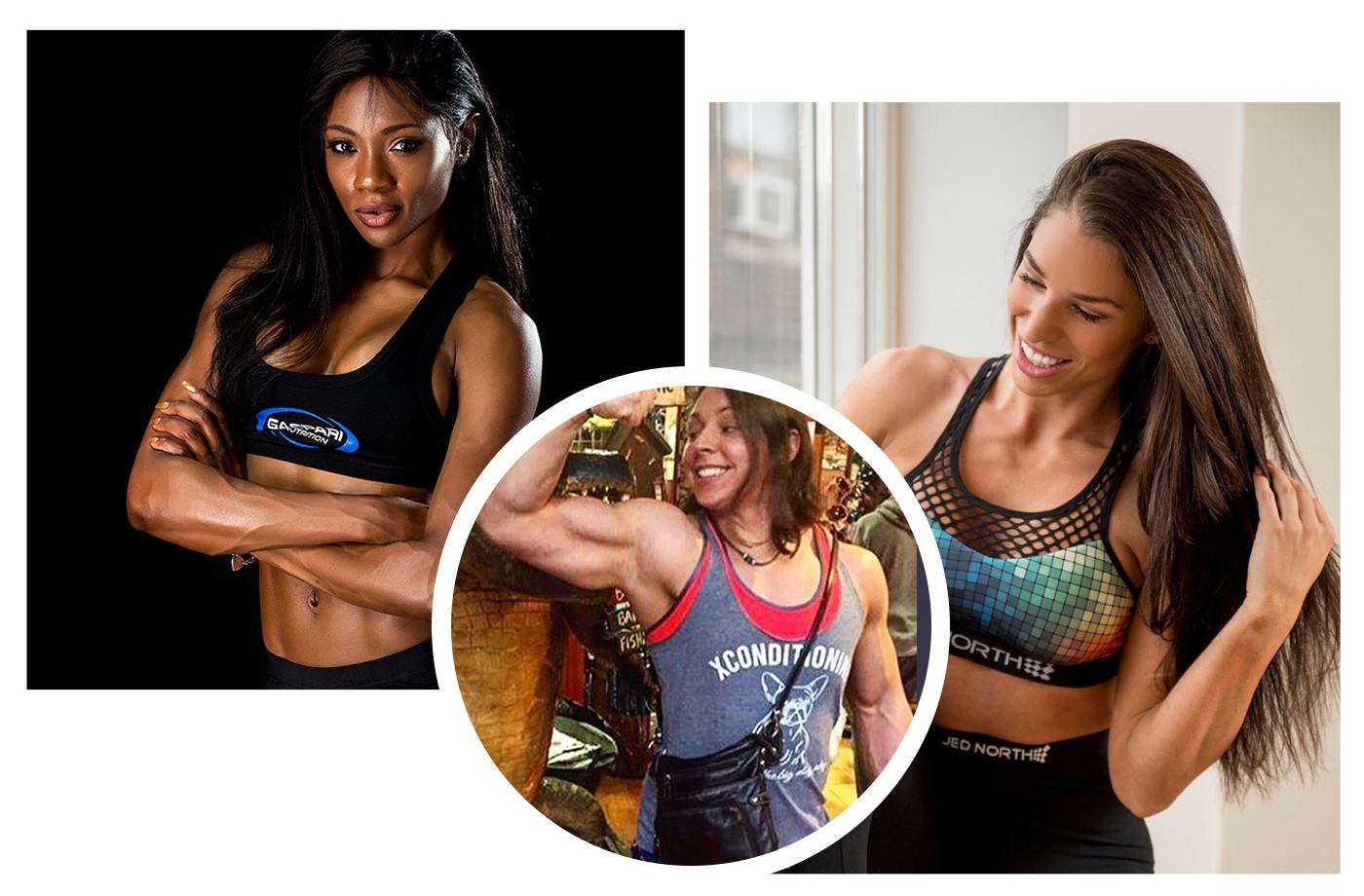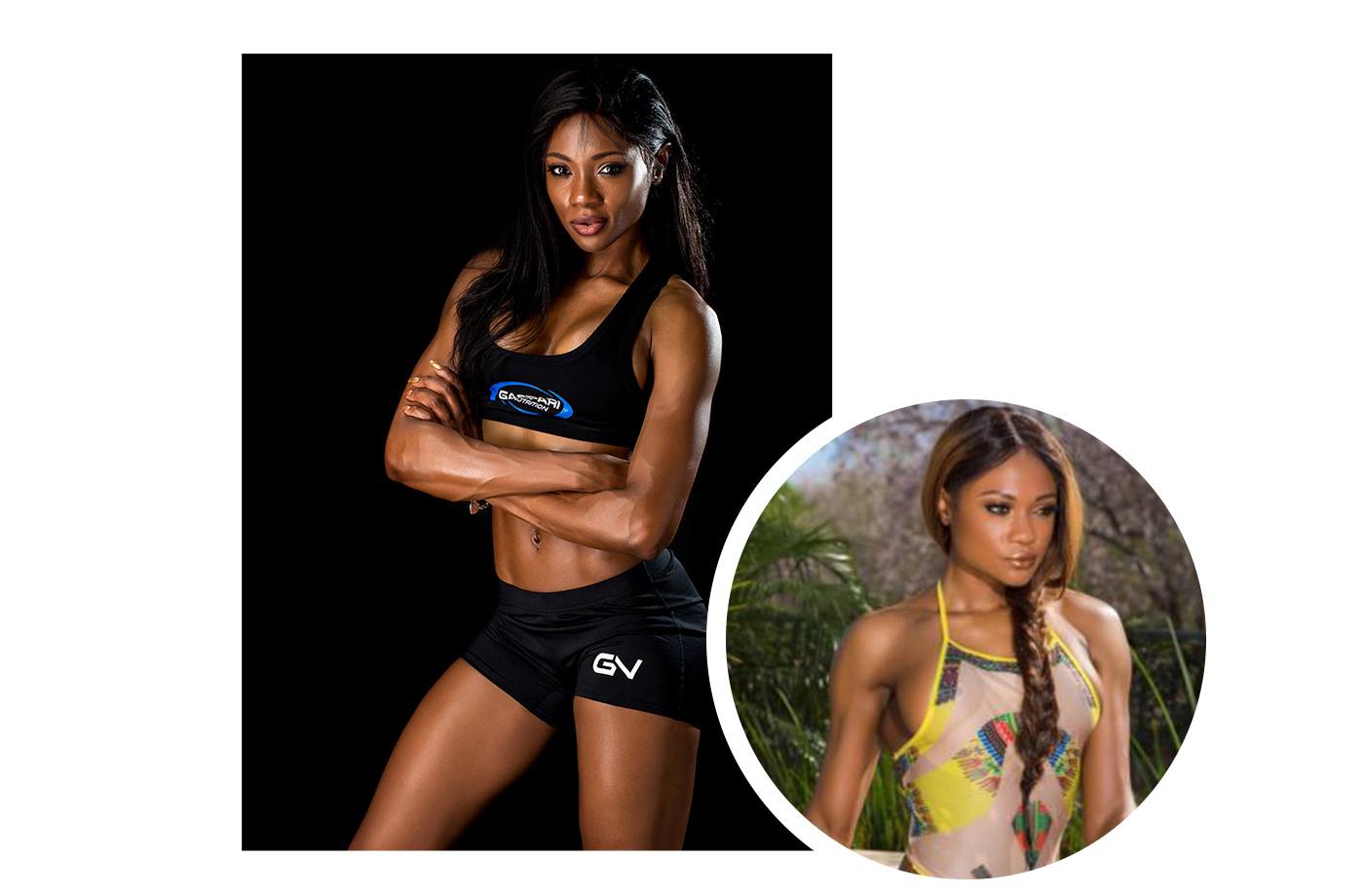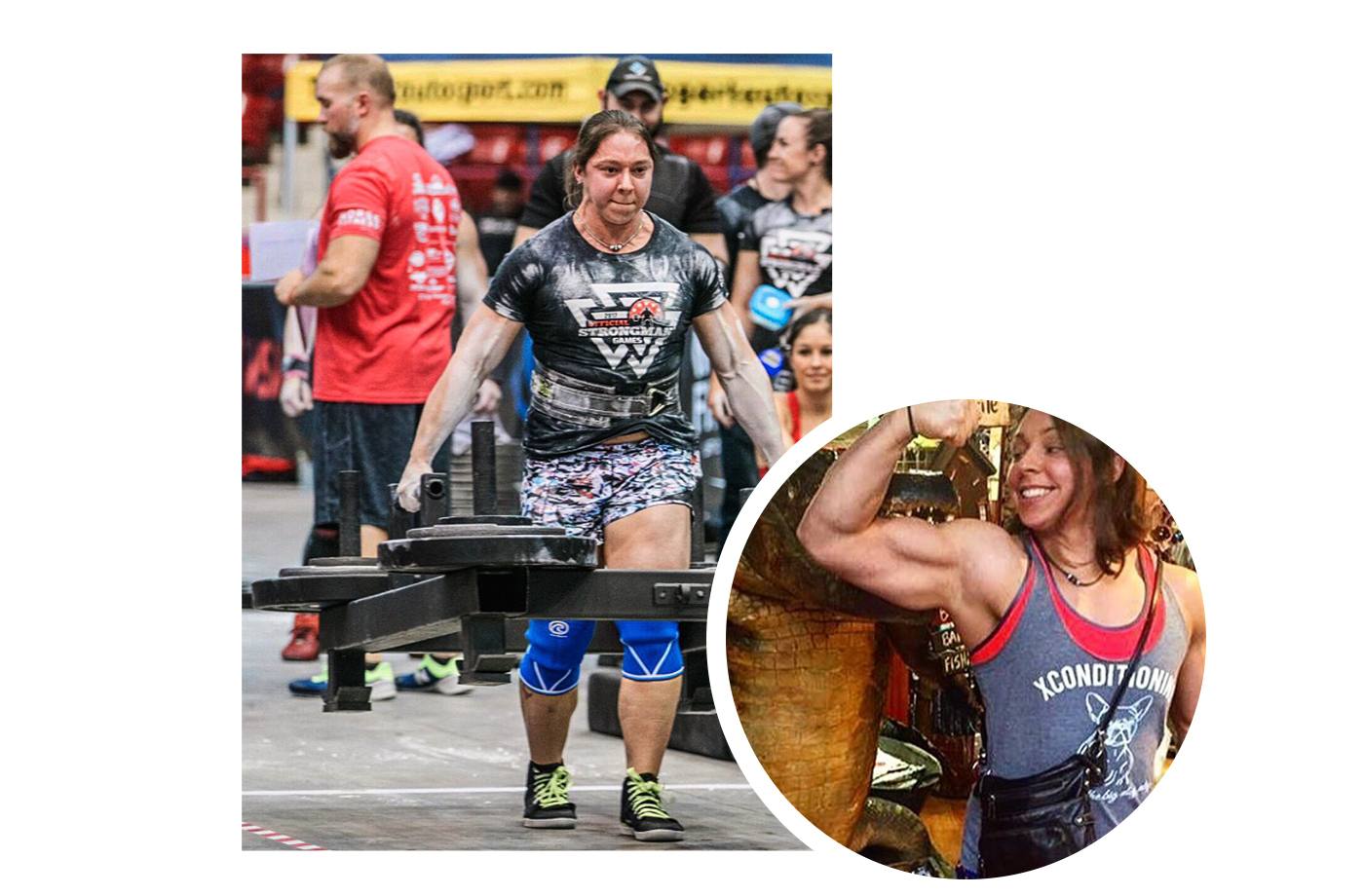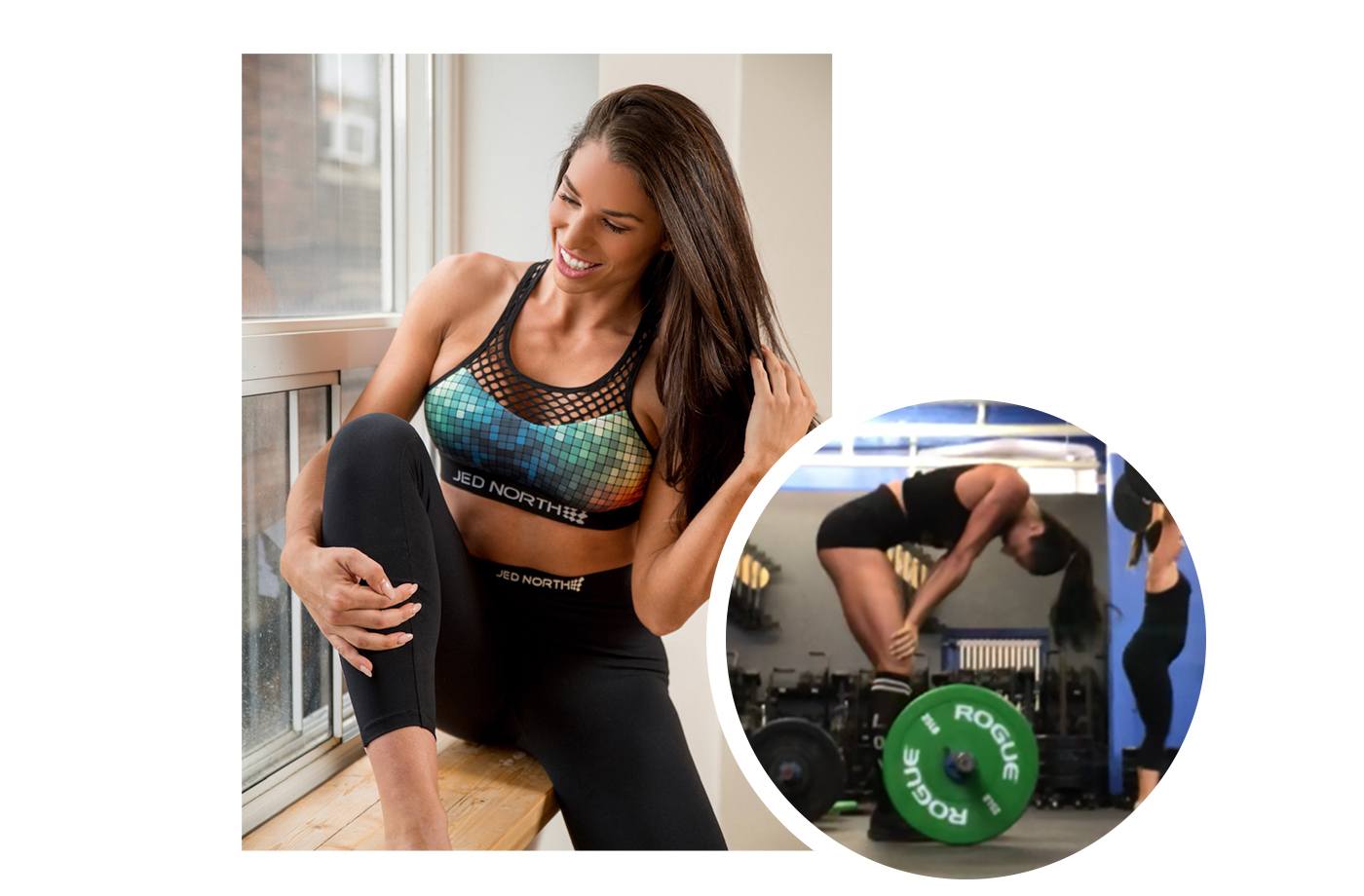
August 23, 2019 at 02:00AM by CWC
One of the final frontiers for body positivity in the fitness world: women having muscles. Society has a particular image of what it means to be feminine, and being shredded is often not included in that limited view—to the detriment of athletes across multiple fields. Serena Williams, the top tennis player in the world, says she’s encountered people who call her masculine “all because of my arms, or because I’m strong.” Olympic gymnast Aly Raisman says she used to be self-conscious about her athletic physique because she felt like her muscles “weren’t feminine.” In short, it’s BS.
We’ve made some gains as a society: Women began to recognize the importance of protein and demanded men make room for them at the weight rack. CrossFit became A Thing, with women making up a full 50 percent of the membership. But there are still some stigmas against particularly muscular women—especially when it comes to more extreme sports known for being ripped, like bodybuilding and power lifting. So we talked to three women who are elite strength-training athletes—two bodybuilders and one power lifter—to hear from them about what the sport means to them and their self-image.
It’s important to say off the bat that bodybuilding is a very strenuous sport not meant for everyone. “The people who actually make it to the competitions are successful, but many people will drop out because of injury because they go hard every single day and it leads to overuse,” says sports medicine doctor and professor Delmas Bolin, MD, PhD. Competitive female bodybuilders typically aim to have a body fat percentage of between 8 and 12 percent—which is not ideal for all women, adds sports medicine doctor Jessalynn Adams, MD. She says that some body fat is essential to maintain a normal menstrual cycle and fertility.
ADVERTISEMENT
ADVERTISEMENTKate Spade Autumn/Winter Sale |
But that’s not to say that bodybuilding is inherently bad or dangerous. “In my word as a sports doc, I see a lot of different people who have a lot of different passions,” says Dr. Adams. “I think as long as you understand the risks and the potential toll it can take on your body, then it’s okay. If someone really loves it and is doing it safely, I’m not going to dissuade them.”
Passion is certainly the right word to describe bodybuilding and competitive strength training, especially for the women that we interviewed for this story.
Finding beauty in power

Marie Blanchard was initially intimidated by the weight room at the gym. “I had no idea what I was doing. I made my friend go over with me,” she says. She used to be strictly a cardio girl, but around six years ago, she decided to work some weights into her fitness routine to become more toned. In an effort to become more educated on what moves to do, she started doing some research online, and stumbled across competitive weight building in the process.
“I saw the competitors posing and decided, ‘you know what, if she can do it, I can do it, too,’” Blanchard recalls. “From then on, I just stayed consistent. I reached out to a couple coaches and did my first show.” Which she placed first in—NBD or anything—and has continued to place first in competitions ever since.
“Bodybuilding makes me feel beautiful because it makes me feel powerful.” — Marie Blanchard
Blanchard primarily competes in bikini competitions, a sub-category under the bodybuilding umbrella. “It’s a bit of a softer look than bodybuilding, less shredded,” she explains. “The judges are looking for all the muscles to be defined and conditioned. They want to see that you have discipline in the gym and with your diet, but they also take into account how your skin and hair look too.”
This may sound about as empowering as the Victoria’s Secret runway, but to Blanchard, the competitions are a celebration of all the hard work it’s taken to get to the stage. “I used to do modeling and when I switched to bodybuilding, a lot of people didn’t agree with what was happening,” she says. “People would always say, ‘Oh god, you look too manly!’ To me, it’s a compliment. If being curvy and feeling strong is manly, I’ll take it. Bodybuilding makes me feel beautiful because it makes me feel powerful. It’s hard work to build muscle. Just like with any sport, the fact that you’re there doing it and being recognized, it’s very powerful mentally.”
What exactly does it take to get there? As you can guess, a lot of gym time. Blanchard does both cardio and weight lifting virtually every day, varying her machine of choice from the Stairmaster, treadmill, and elliptical. Her weight training routine varies daily too, to keep her muscles guessing. “One day I do back and biceps. I break down legs into two days, training my quads one day and my hamstrings and glutes the next. But I always include my calves because I have very small calves,” she says. Her moves are typically between 12 and 15 reps. “It’s not about lifting the absolute heaviest weight you can lift. It’s about training each body part over and over again,” she says of her training philosophy.
Blanchard has the same diligence about her diet as she does in the gym, but she wants to be clear about something: she loves food. In fact, she just came out with a cookbook. “A mistake I made when I first started out was cutting out too many foods,” she says. “When you start working with a nutritionist, they teach you what you need in your diet.” Her eating plan is three low-carb days, followed by three high-carb days, and she always eats a lot of fruits, vegetables, protein, and healthy fats. A typical day of eating for her is egg whites, grapefruit, and asparagus for breakfast, a salad with chicken breast for lunch, a sweet potato as a snack, and fish and veggies for dinner. After a competition, she’ll totally go for pizza or a burger.
Pushing the body to its limits

Tara Green Webber is a powerlifter, which she says is a bit different than bodybuilding. “With bodybuilding, you go on stage and pose, but with powerlifting, you compete doing squats, bench presses, and deadlifts,” she explains. The goal: performing the moves while lifting as much weight as you can. (For the record, she can squat 683 pounds, bench 400 pounds, and deadlift 507 pounds.)
Webber started lifting heavy weights as part of her cross-training for competitive skiing when she was 15. Like Blanchard, she says she was intimidated by the weight room at first and recruited a friend. “I was too afraid to go over by myself, but once I did it a few times, it was fine,” she says. Her interest grew from there and she started challenging herself to lift heavier and heavier, seeing how far she could push her body. By 2010, she started working with a trainer and switched over to competitive power lifting.
Now, Webber trains four days a week with a coach and team of other power lifters, focusing two days a week on upper body and two days a week on lower body. “One day we focus on moving lighter weights at a fast pace and then the next day we’re lifting as heavy of weights as we can for one rep to develop maximal strength,” she says, adding that they do some cardio as well because it helps with recovery. “I’m usually in the gym for two-and-a-half hours, but that includes stretching and lots of breaks because it’s also a social thing too,” she says.
ADVERTISEMENT
ADVERTISEMENTSports Direct Free Delivery on All Orders! |
“People assume that I can’t do normal ‘female’ things, like cook. They figure that I must be, like, pounding things into the ground with a sledgehammer in my spare time.” — Tara Green Webber
As for her diet, Webber eats six meals a day that are high in vegetables and protein. “Breakfast is typically four eggs, spinach, and cheese, and the next four meals are some variation of meat, rice, and vegetables like peppers or carrots. And then before bed I’ll have salmon or eggs again,” Webber says.
Being a powerlifter takes dedication, but Webber says she likes it because it’s fun to be so physically strong. “I’ve always really liked to be strong. Even in elementary school, if there was like a push-up contest I wanted to win. So I guess for me, the ideal is to lift as much as you possibly can,” she says.
Like other women in the sport, she’s come across her fair share of people who believe strength and femininity are at odds. “People assume that I can’t do normal ‘female’ things, like cook. They figure that I must be pounding things into the ground with a sledgehammer in my spare time.” But Webber says that the feelings she gets from being strong—feeling capable and not needing to ask for help—make her feel empowered.
Learning how to listen to your body

Sarah Ainsley Harrison, whose parents are both triathletes and marathon-runners, says she was always into sports growing up. “I played volleyball, rugby, and swam and was offered college scholarships for all three,” she says. Of the three, she chose rugby, which she loved but says was really hard on her body. “I had a spinal injury. I separated my right shoulder twice, I tore both of my quad muscles at different times, and tore the ligaments in my left ankle,” she says. She started going to the weight room for recovery and soon fell in love with the workouts.
As her body changed from lifting weights, she started feeling really good. “When you play competitive sports, typically you’re good at one specific pathway, so it makes your body lopsided. With bodybuilding, everything is symmetrical and it felt good to be more stable, mobile, and flexible,” she says. Not only did Harrison decide to start competing in 2012—she primarily does bikini competitions—she became a bodybuilding trainer herself as well as a stretch therapist, exercise therapist, and is currently becoming a holistic nutritionist. “There’s a lot of bro-science and unhealthy information out there, so it’s very important to work with a certified trainer or coach,” she says.
“There was one girl who kept creating fake accounts and commenting that I needed a nose job and looked like a man. But that only made me work harder.” — Sarah Ainsley Harrison
For her diet, Harrison has daily macro nutrient goals pertaining to protein, carbs, and fats. She also gives herself a fiber goal, which she says is crucial to keeping her digestive system working properly. “Right now, I’m eating about 145 grams of protein, 100 grams of carbs, and 75 grams of fats, and my minimum fiber is 25 grams a day,” she says.
Harrison says she looks to her body for clues that she’s taking it too far. “I have psoriasis which comes back when my body is stressed out or not happy because I might be depriving myself or working out too hard,” she says. “That’s my little warning shot.” It’s part of the reason why she has cut back a bit on her workout routine: “I used to spend three or even four hours in the gym, but now I limit it to two hours,” she says. “I’ll do 45 minutes of cardio, weight training, stretch, and then I’m out.”
Harrison says she loves how bodybuilding makes her feel and though she sometimes gets negative comments on her Instagram, she doesn’t let it get to her. “There was one girl who kept creating fake accounts and commenting that I needed a nose job and looked like a man. But that only made me work harder and I ended up winning the competition I was training for,” she says.
She also gets her fair share of objectifying comments that cross the line. “It’s a very sexualized sport because we’re showing a lot of skin. Sexiness is a part of female bodybuilding, but I think it’s a facet that’s often focused on too much,” she says. To her, it all comes back to confidence and, just like she did with other sports, coming out on top.
Like any ultra-competitive sport, bodybuilding can certainly be taken to extremes. But what all the competitors interviewed for this article maintain is that if you go into it with a healthy mindset, your body will reflect that: Strong mind, strong body. For them, that’s what it’s all about.
Here’s how to maintain a healthy relationship with exercise, according to experts. Plus, when you should skip your workout and get some sleep instead.
ADVERTISEMENT

ADVERTISEMENT
Anya Hindmarch - I AM A PLASTIC BAG
Author Emily Laurence | Well and Good
Selected by CWC
ADVERTISEMENT
ADVERTISEMENTUp to 30% off Gift Sets |







